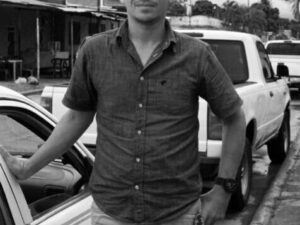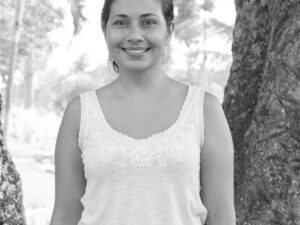Poverty isn’t just a lack of material wealth: people lack the ability to maintain consistency in their lives and dictate their futures. Easier said than comprehended. When you arrive in Honduras for the first time, this can be extremely difficult to grasp. That being said, trash is constantly burned, and when it is, the air is thick and can burn your eyes and throat. Image Source: http://www.jhr.ca/blog/wp-content/uploads/2013/02/photo-5.jpg U.S. Pop Culture infiltrates rural villages in Honduras too. Don’t be surprised if you hear kids singing Rihanna. Sewage systems can’t handle most solid waste in Honduras, which means your toilet paper goes in the trash bin, not the toilet. Image Source: http://www.freedompapercompany.com/wp-content/uploads/2014/11/toilet-paper-rolls.jpg Oh and don’t forget little Caesars, Popeyes, and a Starbucks coming soon. This isn’t what you pictured a developing nation to look like, is it? Your globalized corporations are right down the road from children running barefoot and villages without access to proper sanitation. This may be a little obvious, but running water all day isn’t common even in more developed areas. I remember volunteers asking “how do we flush the toilet?” time and time again at various worksites. Life hack: a full bucket of water poured down the drain does the trick. Not something you see outside your local Chinese food restaurant, Walmart, or schoolhouse, is it? Honduras is notorious for its gang activity, and AK-47s are a form of security for businesses and schools nationwide. Those big buildings we dreaded going to back in our childhood were an incredible privilege. At SHH, we hope to construct all 1,000 schools in the estimated 1,000 rural villages without access to education. A 3-room schoolhouse costs upwards of about $20,000 (yes, of course, our schools in the U.S. are multi-million dollar buildings). Addresses and postal systems don’t exist in rural villages. It’s difficult to imagine that there is no way to deliver mail to certain parts of the world, isn’t it? The palm oil fields throughout Honduras are pleasing to look at, but are actually used entirely for exporting palm oil. Children in villages neighboring such fields would commute to nearby villages for school, but were sometimes kidnapped, assaulted, or worse by gang members or dangerous individuals. Because of this, villages like Eben Ezer stopped sending their children to school. SHH completed a school there in 2013, so that children can receive education in their local community without the dangerous commute. The rules of the road are up in the air, and driving on both sides of the road is (always) in effect. Also, motorcycles are for everyone, including infants. People save up for their families or children to make it to the border… time and time again. If the trip is unsuccessful or even deadly, individuals trying to cross the U.S./Mexico border often attempt many times. The financial risk can outweigh the risk of living in gang-operated regions. Image Source: http://cdn.gretawire.foxnewsinsider.com/wp-content/uploads/2013/03/US-Mexico_Border.jpg People being objectified is something that happens too often in developing countries. Children on the side of the road or in rural communities become museum exhibits or photo ops. This is extremely detrimental to the well-being and dignity of all human beings. Little did you realize, global development isn’t that easy. We hope that SHH can be your first service trip, to teach individuals what their role can be in global development, and how you can appropriately make a difference abroad. You had no idea you’d leave with a new sense of gratitude, newfound respect for others and the environment, and an indignant passion to fight against the world’s great injustices. It might even be the start of a lifelong journey of learning and service.

1. 60% of the population lives below the
poverty line.

2. Trash collection isn’t something readily available in rural villages.
3. Cell phones and cable TV come easier than running water and education.

4. Scented toilet paper is a thing.
5. Wendy’s, Pizza Hut, and Burger King OH MY!

6. Don’t drink the water!

7. Machine guns are a common sight.

8. Education is not compulsory.

9. “Can we start a pen pal program?”
10. Honduras is filled of beautiful palm tree forests… that aren’t forests.

11. The driving.

12. Some people in rural Honduras think about ways to send their children alone to the U.S to escape gangs.
13. You may not have thought much about what it means to be objectified.
14. You may have thought you were going to change the world.
15. Last but not least, you didn’t know your entire outlook on life would change.
15 Things You Didn’t Realize Before Traveling to Honduras
Posted in Volunteer




